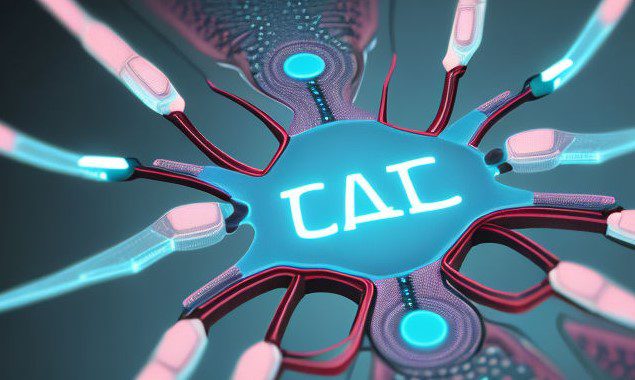Can AI Cure Cancer ?
can ai cure cancer


Can AI Cure Cancer ? , Artificial Intelligence (AI) has revolutionized numerous industries, ranging from finance to transportation. One area where AI shows tremendous promise is healthcare. With its ability to process vast amounts of data and detect complex patterns, AI has the potential to significantly impact the diagnosis, treatment, and prevention of diseases like cancer. In this article, we will explore the role of AI in cancer research and discuss its potential for curing cancer.
Introduction Can AI Cure Cancer
Cancer is a complex and devastating disease that affects millions of lives worldwide. Traditional methods of cancer diagnosis and treatment often rely on human expertise and can be time-consuming, costly, and prone to errors. This is where AI can make a significant difference.
Understanding Cancer
Before delving into the role of AI, it is essential to understand the nature of cancer. Cancer refers to a group of diseases characterized by the abnormal growth and division of cells. It can occur in various parts of the body, and if left untreated, it can spread and cause severe complications.
The Role of AI in Cancer Research
AI offers several potential applications in cancer research, enabling more accurate diagnoses, personalized treatment plans, and advancements in drug discovery. Let’s explore some of the key areas where AI is making a difference.
Early Detection and Diagnosis
Early detection plays a crucial role in improving cancer outcomes. AI algorithms can analyze medical images, such as mammograms or CT scans, and identify subtle patterns that may indicate the presence of cancerous cells. By detecting cancer at its early stages, physicians can initiate prompt treatment, leading to better patient outcomes.
Precision Medicine and Personalized Treatment
Every cancer case is unique, and treatment that works for one patient may not be effective for another. AI helps develop personalized treatment plans by analyzing vast amounts of patient data, including genetic information, medical records, and treatment outcomes. By leveraging this data, AI algorithms can identify patterns and recommend tailored treatment strategies.
Drug Discovery and Development
AI is accelerating the drug discovery and development process, which traditionally takes years and involves extensive laboratory experiments. AI algorithms can analyze vast databases of biological information and identify potential drug targets, speeding up the identification of promising compounds for further study. This can potentially lead to the development of more effective and targeted cancer therapies.
Improving Treatment Efficiency
AI can enhance treatment efficiency by monitoring patients’ responses to therapies and adjusting treatment plans accordingly. Machine learning algorithms can analyze real-time patient data, such as vital signs and treatment outcomes, and provide insights that help physicians optimize treatment strategies. This dynamic approach ensures that patients receive the most effective therapies throughout their cancer journey.
Ethical Considerations
While AI brings significant potential to revolutionize cancer care, it also raises ethical considerations. Privacy concerns, data security, and the responsible use of AI are crucial aspects that need careful consideration. As AI becomes more integrated into healthcare systems, it is essential to establish robust regulations and guidelines to ensure patient safety and maintain ethical standards.
Challenges and Limitations
Despite its potential, AI in cancer research faces several challenges and limitations. The quality and availability of data, interpretability of AI algorithms, and regulatory hurdles are some of the key obstacles that need to be addressed. Additionally, AI should be viewed as a complementary tool to human expertise rather than a replacement.
Future Outlook
The future of AI in cancer research is promising. As technology advances and more data becomes available, AI algorithms will continue to improve, leading to better diagnostic accuracy, personalized treatment plans, and enhanced drug discovery. Collaborations between healthcare professionals, data scientists, and AI experts will be crucial in unlocking the full potential of AI in the fight against cancer.
Conclusion
AI has the potential to revolutionize cancer research and improve patient outcomes. From early detection and precise diagnoses to personalized treatment plans and efficient drug discovery, AI offers numerous opportunities to transform cancer care. However, ethical considerations, challenges, and the need for collaboration should not be overlooked. With continued advancements in AI technology and a comprehensive approach, we can hope for a future where AI plays a vital role in curing cancer.


FAQs
- How can AI help in early cancer detection?
- AI algorithms can analyze medical images and identify patterns indicative of cancer, enabling early detection and timely intervention.
- Can AI replace human doctors in cancer treatment?
- No, AI should be seen as a tool to assist doctors in making informed decisions rather than replacing their expertise.
- What ethical concerns are associated with AI in cancer research?
- Privacy, data security, and responsible AI usage are some of the key ethical considerations in utilizing AI in cancer research.
- Will AI speed up the drug discovery process?
- Yes, AI can analyze vast amounts of data to identify potential drug targets and accelerate the drug discovery and development process.
- How can collaboration between healthcare professionals and AI experts benefit cancer research?
- Collaboration allows for the integration of medical expertise and AI capabilities, leading to more effective and comprehensive solutions in cancer research.




